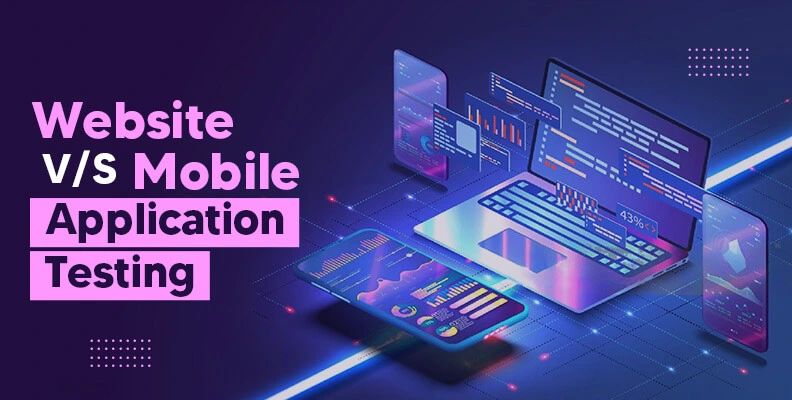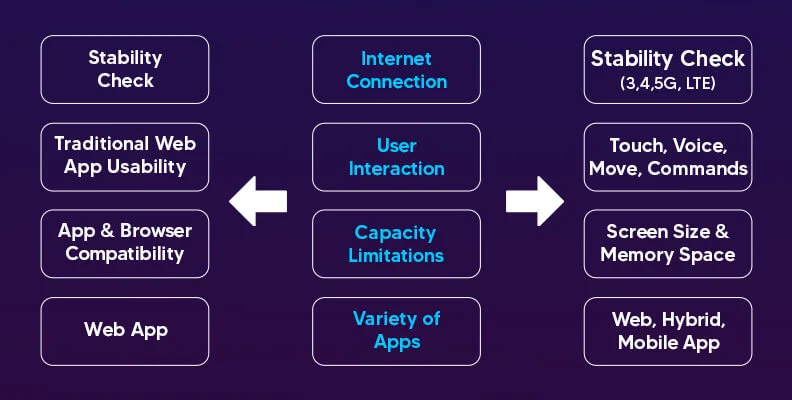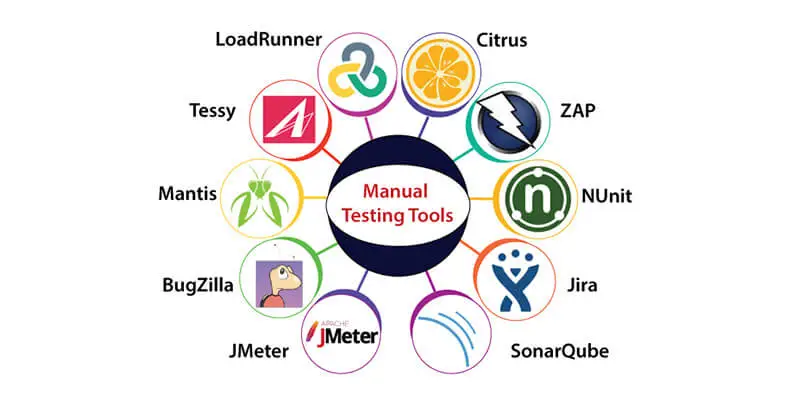Loading.....
Website Application Testing V/S Mobile Application Testing

In a world where the web and mobile apps reign supreme, one thing is certain: quality is non-negotiable. Whether you're the owner of a website or a creator of mobile applications, testing is the unsung hero behind every user's seamless experience. But here's the thing - website application testing and mobile application testing are as different as chalk and cheese. In this article, we're diving headfirst into the thrilling world of testing, exploring what makes web and mobile apps unique and how to ensure they stand up to the toughest scrutiny.
How Different Are Web Apps and Mobile Apps?
First things first, let's separate fact from fiction. Web apps and mobile apps might both make our lives more convenient, but they're as different as night and day.
Web applications, also known as web apps, are your go-to for browser-based convenience. They live on the internet and can be accessed from any device with a web browser. These apps are like the chameleons of the digital world, adapting to any platform you throw at them.
Mobile applications, or mobile apps, have a different story. They're designed exclusively for your trusty smartphones and tablets. These apps are platform-specific and need to be installed directly onto your device's operating system - be it iOS or Android.
These fundamental differences set the stage for how they are developed and tested.

- Platform Diversity: Testing web apps means ensuring they run smoothly on different browsers and devices. Mobile apps, on the other hand, must dance gracefully on various operating systems (iOS and Android) and on an array of device models.
- User Experience: Mobile apps have the upper hand here, offering a deeply personalized and immersive experience thanks to their access to device features like cameras, GPS, and sensors. Testing mobile apps is all about evaluating these extra dimensions.
- Performance: Web and mobile apps both need performance testing but with different criteria. Web apps want to impress with their load times, responsiveness, and browser compatibility. Mobile apps, on the other hand, need to be mindful of battery usage, memory consumption, and app speed.
- Security: Security is a big deal for mobile apps, considering they can access a device's hardware and data. Web apps need security testing too, but it's more focused on vulnerabilities related to web technologies and server-side components.
Choosing the Best Tool for Mobile and Web Application Testing
When it comes to choosing the right testing tools, it's like picking the perfect tool for the job.
- Automation Capabilities: Want to speed up the testing process? Automation is your best friend. Tools like Selenium for web apps and Appium for mobile apps are top choices for automation.
- Cross-Browser and Cross-Platform Testing: A tool like LambdaTest can simplify your life by supporting testing across a wide range of browsers and mobile devices. It's like a Swiss Army knife for testers.
- Testing on Real Devices: Emulators and simulators are great, but nothing beats testing on real devices for nailing the user experience and performance. LambdaTest provides a vast collection of real mobile devices and browsers for comprehensive testing.
- Conduct Security Audits and Testing: Regularly performing security audits and penetration testing is crucial to identify and address vulnerabilities in your Java applications. These tests uncover potential weaknesses in your security measures, allowing you to take corrective actions before malicious actors exploit them. Consistent security testing is a proactive approach to data protection.

Tools and Frameworks for Mobile App Testing
If you're delving into mobile app testing, you'll want to get cozy with tools like:
- Appium: A popular choice for mobile app automation that works across iOS and Android platforms.
- Espresso: Developed by Google, this is the go-to choice for Android app testing.
- XCUITest: If you're in the Apple ecosystem, this framework is your best bet for testing iOS apps.
- Xamarin: A cross-platform tool that simplifies mobile app development and testing for both Android and iOS.
- Robotium and more: These versatile frameworks cater to various aspects of mobile app testing.
Tools and Frameworks for Web App Testing
If you're all about web app testing, you'll want to acquaint yourself with tools such as:
- Selenium: The crown jewel of web app testing, widely acclaimed for its open-source nature and extensive capabilities.
- WebLOAD: Ideal for testing the performance and scalability of web applications under heavy loads.
- Acunetix: A top-notch tool for web application security testing, ensuring your site is safe from vulnerabilities.
- Netsparker and more: These tools specialize in different aspects of web app testing, from vulnerability scanning to load testing.
Accelerate Testing using LambdaTest
LambdaTest is a cloud-based cross-browser testing platform that has garnered attention for its ease of use, scalability, and extensive range of features. It allows developers and testers to run both automated and manual tests on a vast array of browser and operating system combinations, making it a powerful tool for ensuring compatibility and functionality.

Key Differences Between Web and Mobile Testing LambdaTest
- User Experience: Mobile apps often have a different user interface and user experience than web applications. Mobile testing focuses on touchscreen interactions and the mobile-specific user journey.
- Device-Specific Challenges: Mobile testing involves dealing with various devices, each with different capabilities and screen sizes. LambdaTest provides real devices to address these issues.
- Network Conditions: Mobile apps may face varying network conditions, including slow or unstable connections. LambdaTest allows you to test your app under different network conditions to ensure it performs optimally.
- App Stores: Mobile app testing may involve compatibility checks with different app stores like Google Play and Apple App Store. Ensuring that your app meets the submission guidelines is crucial.
Conclusion
Testing, the unsung hero behind every seamless user experience, is the key to ensuring that digital creations meet the highest standards. Our exploration into the intricacies of web and mobile app testing revealed fundamental differences, from platform diversity to user experience, performance optimization to security measures. Tool selection is pivotal, with top choices such as Appium, Espresso, and Selenium. However, for a comprehensive solution, LambdaTest stands out as a cloud-based, cross-browser testing platform that offers scalability and ease of use, facilitating compatibility and functionality across diverse browser and operating system combinations. In conclusion, the paths to impeccable web and mobile applications may differ, but the destination remains the same: a user-friendly, glitch-free experience in the competitive digital landscape.
 Back to blog
Back to blog












